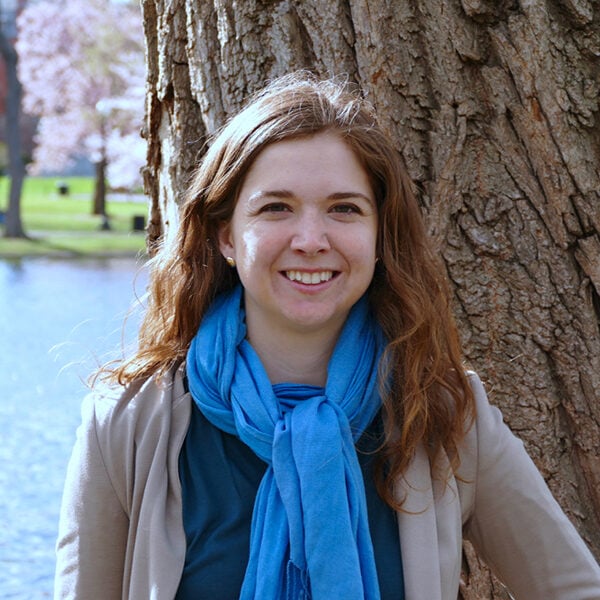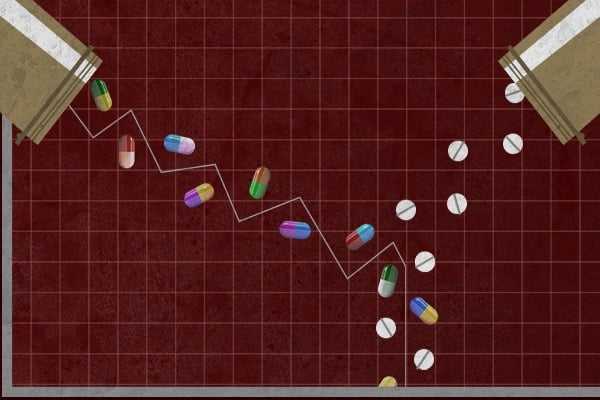Research Interests
Alison Hill is an Assistant Professor starting in Fall 2020, and a core faculty member at the Institute for Computational Medicine and Infectious Disease Dynamics Group. She moved from Harvard, where she did her graduate studies and then worked as a junior group leader for six years.
Alison and her team develop mathematical models and computational tools to help understand, predict, and treat infectious diseases, with a particular focus on human viral infections including HIV/AIDS. They also work on drug resistant infections, bed bug infestations, anti-viral immune responses, and SARS-CoV-2/COVID-19. Their research spans infection dynamics both within single individual and across populations. Alison’s team also works on general evolutionary theory of infectious diseases. In the past, Alison has developed mathematical models for a broad range of topics in biology and medicine, such as pattern formation in early multicellular lifeforms, iron regulation in the body, the interpersonal spread of health-related behaviors, and more.
The work of Alison’s team is done in close collaboration with experimental biologists and clinicians around the world. Their research incorporates a range of data sources, including time-series characterization of infections within infected individuals and across populations, in vitro microbial growth, pathogen genetic data, biomarkers of immunity, in vivo lineage tracing, pharmacokinetics and pharmacodynamics, and human behavior. This work is guided by the belief that quantitative models are a powerful tool to test hypotheses about the biological mechanisms responsible for observed trends in data, and to integrate existing biological data in a formal way to predict the outcomes of experiments that have not yet, or could never, be performed.
Alison received her undergraduate degree in physics from Queen’s University, Canada. Her PhD was obtained jointly through Harvard’s Biophysics Program and the Harvard-MIT Division of Health-Sciences and Technology (HST)’s Medical Engineering and Medical Physics program. After graduating, she won an NIH Director’s Early Independence Award, which allowed her to start her own research group at Harvard’s Program for Evolutionary Dynamics and become a member of the John Harvard Distinguished Science Fellows program. During this time Alison also completed an MPH and the Global Infectious Diseases Program at Harvard School of Public Health.
Alison is passionate about communicating science to the public and the press, and the role of science in policy making. She has written for PBS Nova and Physics Today, participated in science outreach activities for girls in STEM, and previously ran a graduate student science policy group. She is member of the Emerging Leaders in Biosecurity program run by the Johns Hopkins Center for Health Security, and she is on the organizing committee of the COVID-19 Data Forum and the COVID-19 Dynamics and Evolution Conference. Along with a team of researchers across the schools of public health, medicine, and engineering, she helps lead the CDC-funded Center for Applied Modeling Utilization and Synthesis.
Titles
- Assistant Professor, Biomedical Engineering
- Assistant Professor, Applied Mathematics & Statistics
- Assistant Professor, Epidemiology
Affiliated Centers & Institutes
Education
- MPH, Public Health, Harvard University, 2020
- PhD, Biophysics, Harvard University, 2013
- PhD, Medical Engineering & Medical Physics, MIT, 2013
- BS, Physics, Queen’s University, 2007
Recent Highlights
-
April 22, 2021A new study led by researchers at Johns Hopkins and the University of Pennsylvania uses computer modeling to suggest that eviction bans authorized during the COVID-19 pandemic reduced the infection rate and not only protected those who would have lost their housing but also entire communities from the spread of infections.


